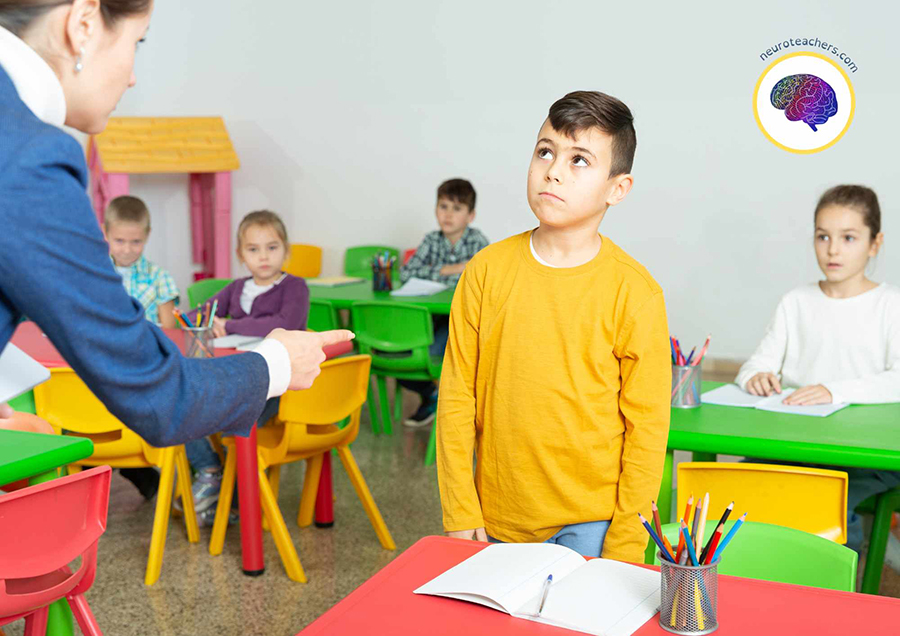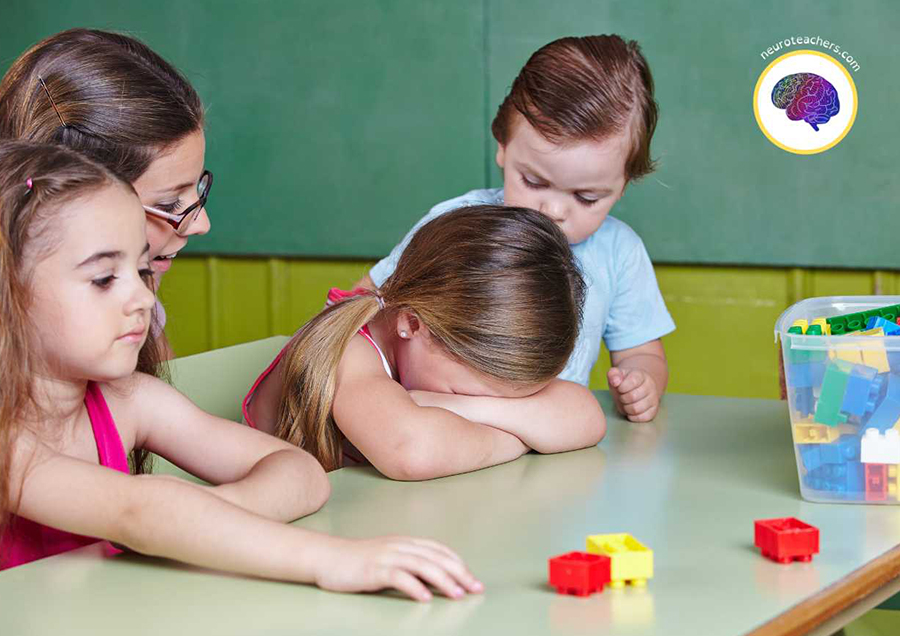What are Challenging and Disruptive Behaviour in Neurodivergent Children?
This blog is the first in a series about behaviour and neurodivergent children. I’m going explain how to understand what is going on when our neurodivergent pupils present as challenging and disruptive and what you can do about them. I’m not just providing ‘top tips’ I’m going to give you simple, practical solutions.
This is just a start point however, there will be more https://neuroteachers.com/post/understanding-challenging-behaviour-in-your-neurodivergent-pupil/

Here I will be talking about my number one behaviour tip to help Neurodivergent pupils behave in your classroom. Challenging and disruptive behaviour in the classroom are both the result of sensory dysregulation. So, if you help your pupils regulate, you will significantly reduce incidences of challenging and disruptive behaviour. According to the research I did for my Master’s degree in Autism, in some cases, working with the sensory system can reduce behaviours of concern by 65%.
First and foremost, we need to understand that neurodivergent people experience the sensory world and quite a different way to Neurotypical peers so what does this mean?
What is the sensory system?
The sensory system is a series of different organs throughout the body which tell us about our environment. You may already be familiar with the five external senses. These are taste, smell, touch, hearing, and sight. You may not know, however, that there are also internal senses and it’s these ones I’m going to concentrate on in this blog.
The first internal sense is the vestibular sense. This means our sense of balance. The receptors for this are in the inner ear and in part of our brain which processes movement. Neurodivergent people may feel dizzy in a situation where Neurotypical would not and vice versa. For example, if you have a member of your class who continuously moves or rocks on their seat, it’s possible they’re not getting enough stimulation in their balance sense. Simply by giving them activities to do that give them a brief (up to 5 minute) amount of feedback in this sense, can reduce self-stimulating behaviour by up to 65%.
You may feel that you ‘just want to get on with the lesson’ or ‘haven’t got time to waste’ but, let me assure you, helping your pupils to regulate, is not a waste of time. Far from it! It is likely to save you time because a regulated child is less likely to disrupt your carefully planned lesson.
To overcome this, you might wish to consider giving them an activity that will give them feedback in this sense. If you have a swing in the playground that could be useful. However, if this is not available, simply ask them to spin round a few times in a free area of the classroom or have a good shake or twist. Standing whilst listening or writing can also help some neurodivergent people with hypo stimulation in this sense to feel regulated.
What is proprioception?
Proprioception is our external sense of body awareness. There can be huge variation in how neurodivergent people experience proprioception. This sense tells us where we are in space in relation to other people and objects. It’s picked up in the nerves around our tendons and ligaments. Many neurodivergent people are either hypo or hypersensitive in this area. If you have a pupil who constantly needs to lean on or hug or touch other pupils or members of staff in a heavy way it could be that they are under stimulated, hyposensitive, in their proprioceptive sense. If, on the other hand, you have a pupil who is hypersensitive to proprioception, they may find it difficult to have any proximity to other people and may walk very cautiously around the room in case they bump into objects even when they’re far further away, then they think. In this case, seating this child in a position where they have some space between them, and others may be helpful.
What is interoception?
Interoception is the sense of internal body awareness. This isn’t a straightforward one. It is picked up by a number of different internal organs. So the interoceptive senses includes things such as needing to go to the toilet, feeling hungry thirsty, Feeling too hot or too cold, experiencing pain or discomfort. These are picked up by various organs including the stomach, bladder, kidneys, adrenal glands and nervous system. Rather than being one sense, this is a series of different sensory receptors which we use an umbrella term for. Children with hypersensitivity in this sense my feel constantly too hot or cold or be unable to recognise when they need to toilet, are hungry, thirsty or have a very different physiological response to pain. Dysregulation in any of these areas can lead to frustration, confusion, lethargy or poor concentration which, in turn can lead to disruptive behaviour.

What does this mean for our neurodivergent divergent learner?
Children who have difficulty with interoceptive senses may for example be hungry all the time because they can’t pick up when they’re full or never know when they are hungry so may skip meals. These influences eating at lunch and break time because neurodivergent pupils with difference in interoception could, eat to the point of making themselves sick or conversely needs to be told to eat and drink because the receptors inside their body do not respond to having an empty stomach in a typical way.
How does this affect behaviour in the classroom?
If a child is dysregulated i.e. the sensory system is out of kilter with what they need in order to be inside their window of tolerance, this means that they will not be able to concentrate on your lesson no matter how beautifully presented and wonderfully well thought out the information you are giving them is.
What can I do about this?
Simply put, you need to make sure that your child is regulated. I’ve created a list of different activities that you can do within the classroom that will help your child to regulate. For primary and early years children please see the link here https://neuroteachers.com/product/play-for-de-escalation/ for secondary school children please see the link here https://neuroteachers.com/product/tips-for-sensory-regulation-secondary-age-pupils/
For more tips to improve behaviour in your neurodivergent pupils, click here for blog 2
Follow us on TikTok for more tips https://www.tiktok.com/@neuroteachers
